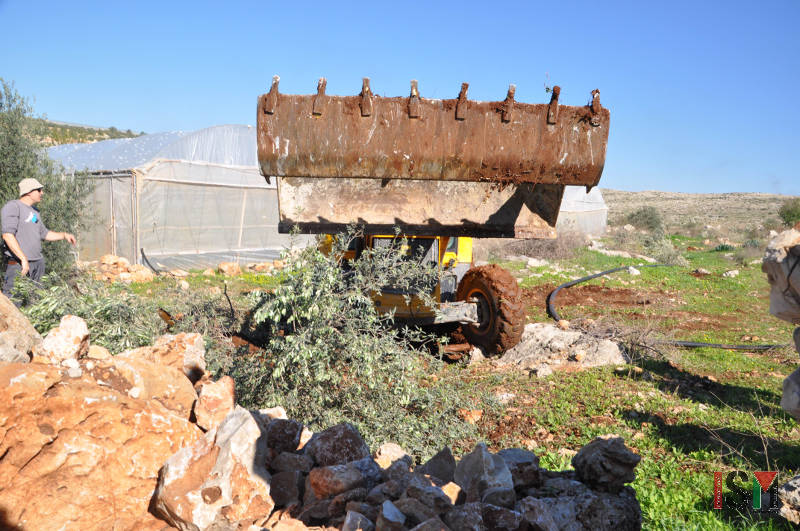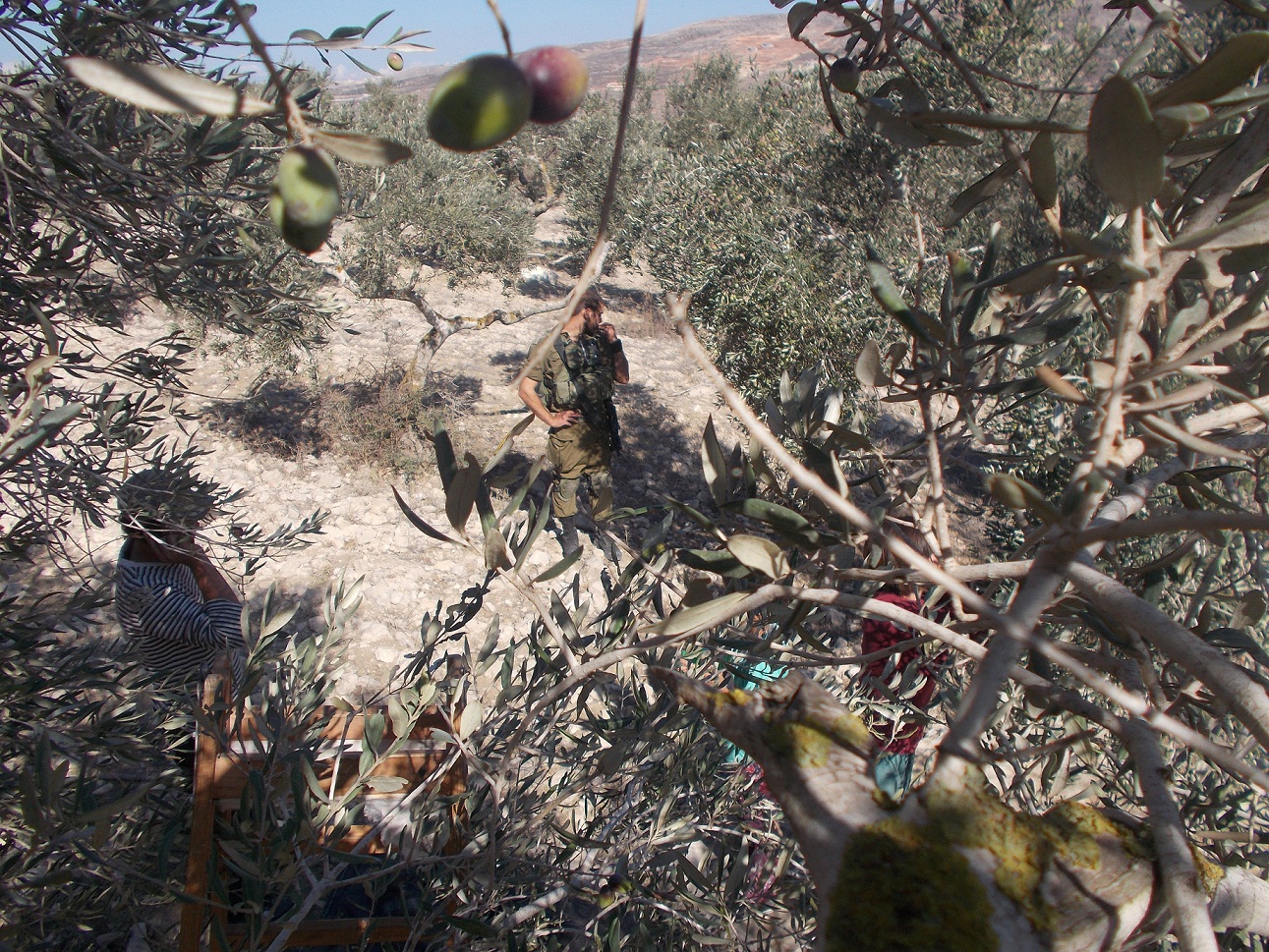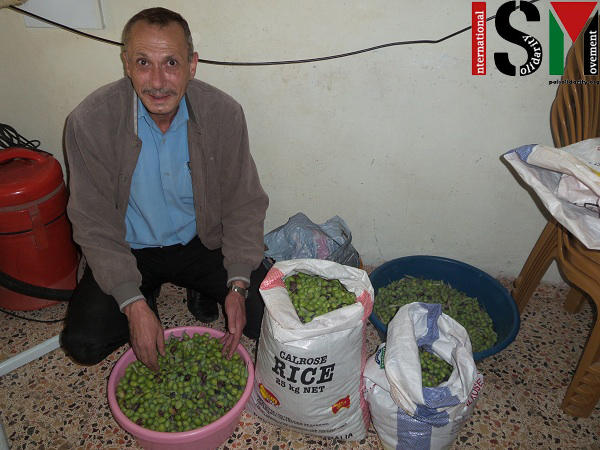Tag: Olive Trees
-
Israeli forces uproot trees and destroy greenhouses in Kafa district
8th of December 2015 | International Solidarity Movement, Tulkarm Team | Kafa district, occupied Palestine On Tuesday, Israeli forces entered the village of Kafa in the outskirts of occupied Tulkarm. Within a few hours, they uprooted over 150 olive trees, 30 lemon trees and demolished four greenhouses from the land of the Esmail family. Even…
-
Burin farmers once again prevented from picking their olives
1st November 2015 | International Solidarity Movement, Huwarra Team | Burin, occupied Palestine Yesterday, the 31st of October, close to the end of this year’s annual olive harvest, another family of farmers in the village of Burin, near Nablus in the northern West Bank, were again prevented from picking their olives by the Israeli army…
-
Remembering Hashem al-Azzeh
23rd October, 2015 |International Solidarity Movement, Al-Khalil Team | West Bank, occupied Palestine We are remembering our great friend & the great friend of Hebron, Hashem al-Azzeh, who gave this interview with ISM last year before his tragic passing earlier this week.



